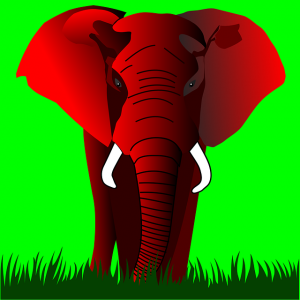 Among news commentators throughout the West, there is the constant complaint that the rich are getting richer and the poor are getting poorer. Numerous books and articles are quick to criticize the present economic system as the cause of these ills. They claim capital tends to concentrate indefinitely and propose a tax-the-rich solution as the only real means to combat economic inequality.
Among news commentators throughout the West, there is the constant complaint that the rich are getting richer and the poor are getting poorer. Numerous books and articles are quick to criticize the present economic system as the cause of these ills. They claim capital tends to concentrate indefinitely and propose a tax-the-rich solution as the only real means to combat economic inequality.
In all this criticism of economic inequality, there is a strange silence surrounding an economic system that escapes the sharp gaze of academia and liberal pundits. No one seems …or wants … to notice a strange, big, red elephant or rather a herd of such elephants firmly established in the middle of the room. If indeed the wealth gap is a problem, these elephants should be the natural objects of attention.
Is Technology Ruining Your Life? Take A Quick Quiz To Find Out By Clicking Here.
These big red elephants are, of course, the socialist and communist governments that still shamefully operate in so many countries throughout the world. The most obvious cases are countries like Cuba, Zimbabwe and North Korea that are ruled by iron-fisted ideologues and their lackeys. These live in luxury while the oppressed population suffers in abject poverty and oppression. The wealth gap found in these countries is an immense and yawning chasm.
But there is another, less obvious, variety of big red elephant. This one might be described as the same kind of red elephant dressed in tights, as if to hide the massive animal from view.
These elephants in tights are those officially communist nations like China and Vietnam which have liberalized certain restraints and accepted Western investment dollars. They have put on capitalist trappings to hide the monstrous, unjust socialist system that remains in place.
What most people do not realize is that all these red elephants in tights tend to concentrate wealth much, much more than Western economies. Take, for example, the case of communist China, where the wealth gap is immense. In their book, The Fourth Revolution, authors John Micklethwait and Adrian Wooldridge report that the published wealth of the fifty richest members of Beijing’s National People’s Congress is $95 billion. This is nearly sixty times the combined wealth of the fifty richest members of America’s Congress.
Such rich individuals are not just businessmen who have profited from Western economic reforms. No, they are all cadres controlled and favored by the Chinese Communist Party. Micklethwait and Woodridge report that the Party has a file on everyone, monitors the careers of all major players and determines and frequently rotates all senior figures in corporate China. All these big players are paid or paid off fabulously while China is notorious for its cheap and slave labor and appalling working conditions.
This huge wealth gap escapes the criticism of Western pundits and analysts. There is no talk about wealth inequality in China or Vietnam. In fact, there is often praise for the big red elephant in tights. New York Times columnist and Nobel Lauriat Thomas Friedman, for example, wrote: “One-party autocracy certainly has its drawbacks. But when it is led by a reasonably enlightened group of people, as China is today, it can also have great advantages.”
Just and proportional wealth inequality helps an economy and nation to prosper. Unjust  and disproportional wealth gaps like that in red elephant countries do the contrary. Undoubtedly, Western economies have their problems in this regard which need to be addressed. However, it is time to stop the war on just inequality. The fact is that socialist and communist governments are the primary unjust concentrators of wealth in the world today. It is time to start looking at the big red elephants in the room. It is especially time to beware of the big red elephants in tights.
and disproportional wealth gaps like that in red elephant countries do the contrary. Undoubtedly, Western economies have their problems in this regard which need to be addressed. However, it is time to stop the war on just inequality. The fact is that socialist and communist governments are the primary unjust concentrators of wealth in the world today. It is time to start looking at the big red elephants in the room. It is especially time to beware of the big red elephants in tights.


